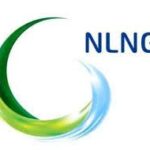The Nigerian Maritime Administration and Safety Agency (NIMASA) has stressed the importance of a robust, independent, integrated information verification and communication platform in her operations.
This would serve as a reliable database from where information and statistics on maritime labour in Nigeria can be accessed seamlessly.
NIMASA Director General, Dr Bashir Jamoh stated this in Lagos, Tuesday,
when the agency unveiled her electronic registration platform for maritime labour and launching of Biometric Identity Cards to dockworkers.
The DG who was represented by Engr Victor Ochei, the Agency’s Executive Director, Maritime Labour and Cabotage Services, described the idea of automation processes as a major step that would benefit the industry in terms of saving time. It will also impact on service delivery, as well as build capacity of the maritime labour workforce.
He expressed delight about the prospect of eliminating the time- consuming process of registering seafarers and employers, a gap which the e-Platform would now fill.
“It is further expected that the e-Platform would promote a seamless registration process that will culminate with the issuance of biometric identity cards to seafarers and dockworkers.”
Dr. Jamoh emphasized that the Agency remained committed to building up the capacity of Nigerian seafarers and dockworkers in order to improve on the standing of the country’s maritime sector in the comity of maritime nations stating.
“I wish to reiterate the Agency’s commitment towards actualising its mandate as provided in the enabling Act. Our resolve to make life meaningful to the entire maritime labour remains firm and we intend to achieve this through sustainable efforts in capacity building and improved welfare. The Agency is also prioritizing the training of Nigerian seafarers to meet industry needs with emphasis on specialized and advanced trainings.”
In his intervention, the President General of the Maritime Workers Union of Nigeria (MWUN), Comrade Adewale Adeyanju, said he was delighted that NIMASA has eventually automated her maritime labour registration processes, a critical instrument that stands to further improve the welfare of dockworkers.
He hailed the Agency for proving that it was indeed committed to improving standards in the Nigerian maritime sector especially in terms of labour practices and capacity development.
The event attracted representatives of major maritime stakeholders. These included the Nigerian Ports Authority, Nigerian Shippers Council and the Nigeria Immigration Service.
Others were the Nigeria Customs Service and the Port Commissioner of Police, Apapa Port.













